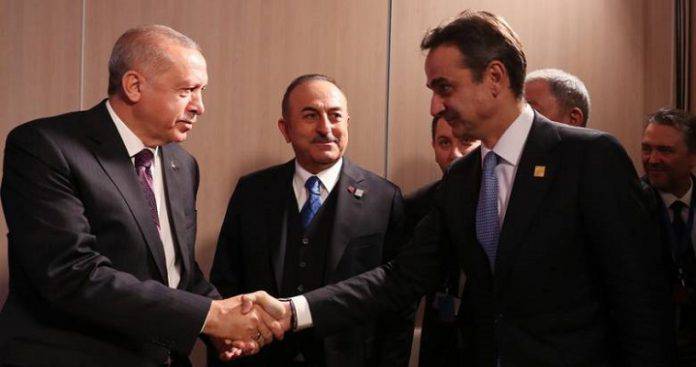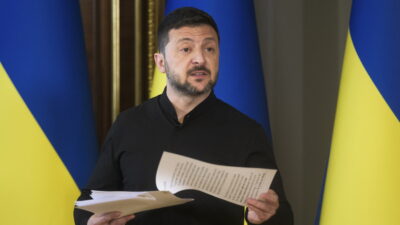Vaggelis Sarakinos: Is “earthquake diplomacy” possible with Erdogan? – Why 2020 is not 1999
31/10/2020
Memories from 1999 and the famous “earthquake diplomacy” between Greece and Turkey were brought back by the deadly earthquake that struck Samos and Smyrna. That diplomacy had then brought the two peoples closer, launching political processes, which initially gave the impression that Greek-Turkish friendship could be achieved. But is such an approach possible today with Erdogan’s Turkey?
In the aftermath of the deadly earthquake in Samos, from which Greece mourns the tragic and unjust loss of two young children, Turkey is again with disproportionate losses, both in human lives and in economic disasters. The same thing happened in 1999 with the earthquakes of August 18 in Izmit and September 7 in Parnitha.
At that time, a huge wave of solidarity between the two peoples had spontaneously manifested, first from Greece to Turkey and then vice versa. Tens of thousands of Greek citizens took part in fundraisers, blood donations, and fundraising events to help Turkish citizens affected by the deadly earthquake, which left behind some 18,500 dead and 50,000 injured. Three weeks later, Turkish citizens showed similar solidarity with Greece and the victims of the deadly Parnitha earthquake.
Will earthquake diplomacy continue?
Many spoke then, and still speak, of the famous “earthquake diplomacy”, in the face of the popular sense of solidarity that had been expressed, political processes were launched at the Helsinki Summit in December 1999. Greece, three years after the Imia crisis, which had brought the two countries to the brink of war, accepted Turkey’s candidacy for EU membership. Turkey, for its part, then accepted the resolution of Greek-Turkish differences on various issues and the Cyprus issue, as well as its own democratization within it, as preconditions for its European course.
Today, amid tensions in the region over ongoing Turkish delinquency, Kyriakos Mitsotakis called Erdogan and expressed his condolences and support for the victims of the new tragedy. At the same time, he stated Greece’s readiness to help deal with the disaster. A similar move was made earlier by his Nikos Dendias to his Turkish counterpart.
Erdogan, for his part, thanked the Greek prime minister and expressed Turkey’s readiness “to help Greece heal its wounds.” He even added that “the fact that two neighbors show solidarity in difficult times has more value than many things in life.” This is a rather diplomatic response with which the Turkish president is trying to show that he appreciates and defends the relations of solidarity between neighboring peoples, despite the fact that the whole previous period he undermined the sovereignty of Greece and Cyprus.
He even added that this solidarity has “greater value than many things in life”, which, however, he left undefined. At the same time, he is trying to appear strong and, while leading a Turkey that is flirting with bankruptcy, he declared that this Turkey is ready to “help Greece heal its wounds”. How of course is something that only he knows.
That was then, this is now
The communication between the two leaders took place at a time of great tension between Athens and Ankara, due to the Turkish provocations, and can generally be considered a positive development. It is, however, far from being seen as the starting point for a genuine approach, which could lead to a meaningful dialogue on the basis of mutual respect and respect for international law. And this is because 2020 is not 1999.
Simitis did not then have a “Greek-friendly” Turkish prime minister against him. But he had in front of him completely different conditions, both in terms of the world situation and the narrower context of Greek-Turkish relations. Greece was then a country preparing to join EMU, the hardcore of the EU, and then-Turkish Prime Minister Bulent Ecevit was convinced, though initially opposed, that Turkey could gain much more by building closer ties. with the EU.
On the other hand, Turkey was, at that time, represented abroad by Ismail Cem. A politician with a European education and a European orientation, who could not be compared to the often “inelegant” Cavusoglu. The big difference, however, remains Erdogan’s philosophy on policy. The current president of Turkey has invested in the review of Greek-Turkish relations in order to cover the internal problems and to establish a personal political system, the “Erdogan republic”. He thus chose a tough profile against Athens and Nicosia to appear as an advocate of the interests of the Turks and the Turkish Cypriots.
Ecevit, on the other hand, had no such problem. Although less cosmopolitan than Erdogan, as prime minister who ordered the invasion of Cyprus in 1974, he remained an undisputed supporter of Turkish and Turkish Cypriot interests. So he could have made … concessions, without this leading him to unpleasant internal situations, something that is almost certain to happen in the case of Erdogan.





